Industry
Top 5 KPIs: Jim van der Poel
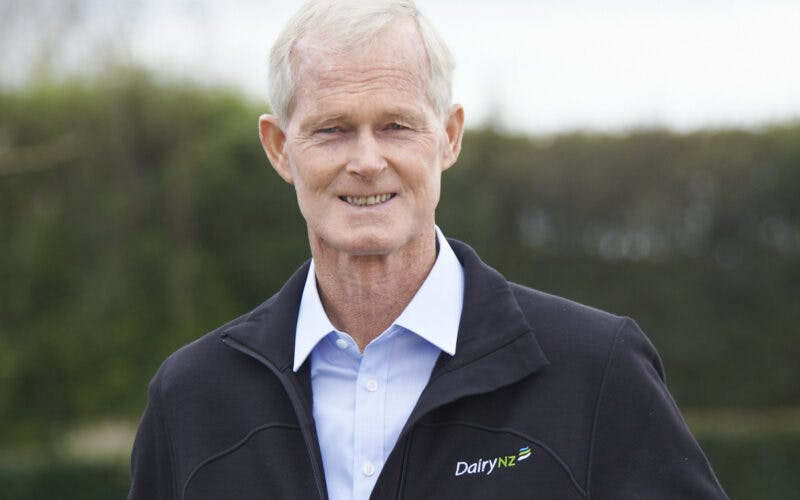
"Whether System 1 or System 5 - my view is that all the best farmers understand the principles of how to get the best out of their pasture."
- Jim van der Poel, Chair, DairyNZ
Jim and his wife Sue have farming interests in Waikato, Southland, Canterbury and the United States. Jim is also the chairman of DairyNZ. Jim's Top 5 KPIs offer some sage advice learnt from his years in farming. He says no matter what, "focus on the things you can control, have a plan, then you can work out what actions you’re going to take to get you through. Once the decision is made, implement and monitor. If circumstances change make a new decision."
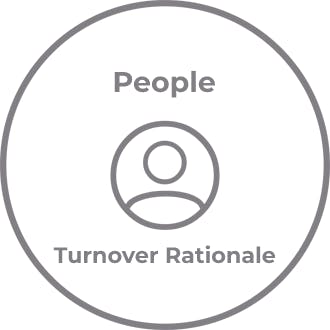
People
Business is always about relationships - no matter who you’re dealing with, family, staff, bankers, partners - you need to have good relationships with the people you are engaging with. For me this starts with you and your family and making sure you’re doing what you are doing for all the right reasons. Getting ahead, enjoying it and getting satisfaction out of it. It’s also very much about the people in your business, ensuring that they are also enjoying it, the culture is right for them, that they’re remunerated appropriately and that you have a good understanding of their aspirations so that you can help them on their journey.
Keep an eye on your turnover but really know the type of turnover within your business. All businesses have staff turnover but it is so important to understand the rationale for it. I think the best way to demonstrate this is anecdotally. Some of our people have been with us for years, we’ve been able to create opportunities for them to grow to reach their aspirations. A great example of this is one of our team who started in our system as an assistant and over the past 5 years has worked their way into a contract milking role with us.
If staff are leaving mid way during the season because they aren’t enjoying their jobs - that’s a pretty telling indicator. If they leave at the end of the season, but go to a job that doesn’t advance them, that suggests something too. If they leave for growth and opportunities, however, that’s a different story.
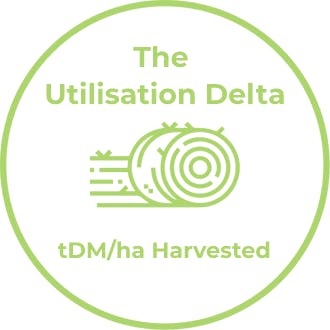
Grass is king - the 'Utilisation Delta'
Whether System 1 or System 5 my view is that all the best farmers understand the principles of how to get the best out of their pasture. From growing the best grass you can, by making sure the fertility levels are right and that it hasn’t been damaged over winter or summer. You want to grow and harvest as much grass as possible as it will flow directly to your bottom line. Farmers who get this right are always better off - no matter what system you’re running.
If you don’t plan or manage, it’s easy to fall into a hole and ‘ring up the feed truck’ to fix it. This is ok if it is for strategic reasons but it quickly starts to eat away at your profit if it is used to make up for poor planning. We like to look at how much grass we’re actually growing and then how much we’re harvesting. This is what I refer to as the Utilisation Delta. To calculate this we look at the tonnes of dry matter per hectare grown and how much of this is harvested. I do this calculation at the end of a season. Weather variations will influence seasonal growth but you soon get a picture of how you are tracking.
In our system harvesting is a reversed engineer calculation. So for us, farm walks are a very strong measure - we can work out what we’ve grown in a season.
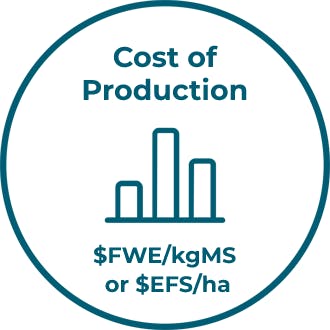
The market doesn’t care what your cost of production is
The market that buys your produce does not care what our cost of production is. We all have costs and they are hard to control. But a farmer's costs or net profit compared to their neighbours will have a direct impact on their ability to grow and have a reasonable standard of living. Farmers have to define this for themselves. Decide what right is for you, making sure that when you are building cost into your system that you can justify it. If you can keep on top of the little things and get that right you should be in pretty good shape.
When I look at my business the cost structure is alway an important component. Because we have a higher input system our total costs are going to be higher than a low cost farmer. But it is the bottom line we focus on. We need to be confident that the profit at the end of the day will be higher and be able to justify those additional inputs.
We keep tabs on this by measuring both cost per kgMS or Economic Farm Surplus (EFS) - and how many hectares and how many cows you’re measuring that over. I personally mainly measure EFS per hectare and total EFS. We then use DairyBase to benchmark our EFS.
We benchmark to make sure we are better off. What are our margins at the end of the year and what gains have we made? Ultimately you and your family will have a better lifestyle, or you will have more options to grow equity or create debt servicing opportunities than somebody with a lower EFS.
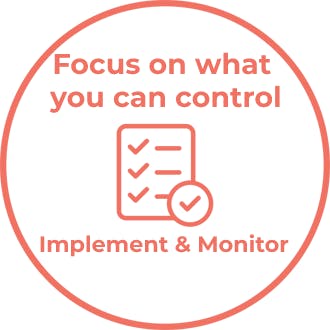
Focus on what you can control
In times of trouble or stress, farmers often tend to worry about things that they have no control over. For example the weather or what payout is going to do. I find this very disempowering. It is important to focus on the things we can manage and focus on how to deal with the challenges and not dwell on the issues. If we can change our mindset to “this is how I’m going to get through” that’s really empowering.
We need to focus on the things we can control, have a plan, then work out what actions we are going to take to get through. Once the decision is made implement and monitor. If circumstances change make a new decision.
Challenge and think ahead. For example, in our system we always will have feed on hand so we always have options. For us, when it's in the stack it only costs the interest, the day we feed it out that cost rises to the cost of replacing it so we need to know that there is a good return from that decision.
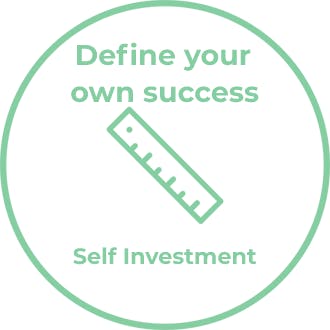
Define your own success
The best thing anyone can do is invest in themselves - make yourself valuable to you and your family. Be good at what you do, put yourself in a position where you are valuable to yourself, your family, your employer and any future employer. Ensure you are in a position to get the right career options. Grow your own success and have a clear plan. It’s also important to track against your plan - how are you going to measure success? Eg building equity, owning a home, having good family holidays. If you’re part way through the journey and you fall off course, that’s ok. Redefine what success looks like. Change the plan.
To learn more about Jim’s tips on planning check out his supplementary article here.
Interested to see what others have ranked as their Top 5 KPIs?
Take a look at what other industry characters have defined as their Top 5 Farming Key Performance Indicators.